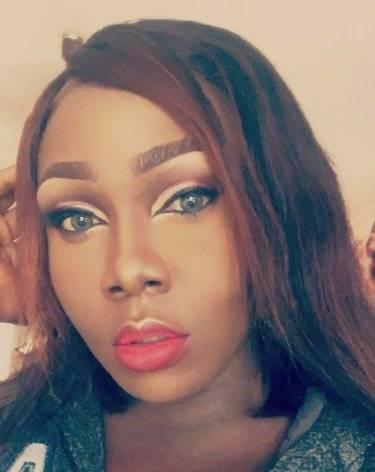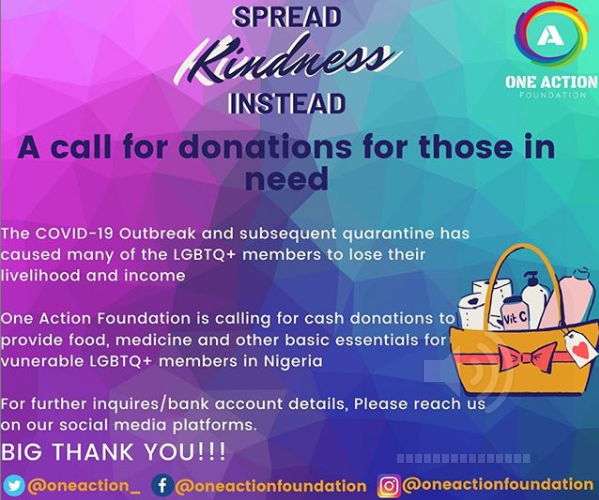How LGBTIQ+ Nigerians are coping with COVID-19 pandemic
Colin Stewart is a 45-year journalism veteran living in Southern…
The LGBTIQ+ community in Nigeria has been severely impacted by the new coronavirus, LGBTIQ+ human rights activists say.
From the African Human Rights Media Network
By Mike Daemon
In late February, Nigeria recorded its first confirmed case of the virus when an Italian man working in Lagos tested positive, the Nigeria Centre for Disease Control (NCDC) reported.
Last month after several other confirmed cases in various parts of the country and with recommendations by the NCDC, the Nigerian government in a bid to stop the spread of the virus ordered a complete lockdown of three affected states — Lagos, Abuja, and Ogun state — allowing only essential businesses to operate.
Fearing the virus would spread, other Nigerian state governments adopted similar measures.
The lockdown has affected many Nigerians, especially the poor and other vulnerable groups.
To shed some light on the situation about how the pandemic is affecting the LGBTIQ+ community in Nigeria, NoStringsNG reached out to LGBTIQ+ human rights activists.

Emmanuella David-Ette, Nigerian intersex-trans activist. (Photo source: Facebook)
Emmanuella David-Ette, an intersex-trans activist, said she now is forced to remain indoors and her work is put on hold. David-Ette supports trans, intersex and gender non-conforming persons in Nigeria through her organization Dynamic Initiative for Healthcare & Human Rights (DIHHR),
“My work involves reaching out to transgender, intersex & gender non-conforming individuals and offering them psychosocial support, paralegal services. Sometimes in the process, I collect important information which helps me to plan future interventions. But given the situation, I too also need to observe social distancing as directed by the government, so now I have to stay indoors,” she said.
A trans woman who asked to stay anonymous said she’s depressed from staying indoors.
“I’m been isolated in my own walls without provision for survival and these alone cause depression for a person. My mental health is severely being affected,” she said.
Uyo-based trans-activist said she lost her job because of the pandemic.

Uyo-based trans-activist Sydney Abundance. (Photo source: Facebook)
“It’s a terrifying experience — panicking and waiting for what next will occur,” she said. The lockdown “has created a huge limitation at work, church, etc. My organization [works with key populations at risk of contracting HIV] in both rural and urban areas, but with the current lockdown, we can’t have access to this category of persons anymore because everyone’s adhering to the lockdown policy and, as we know — no work, no pay!”
LGBT human rights activist and HIV advocate Somadina said the situation has made it difficult for many LGBTIQ+ persons living with HIV to access their medications.
“This lockdown has limited movements, so I am unable to hold my usual peer-education sessions with LGBTIQ persons within my area. This means that I am unable to offer counseling to the ones who need it, educate them on safety measures, share condoms and lubes to them in the promotion of safe sex, and proffer solutions to their challenges.
Many of my peers are not able to access treatment and counseling for HIV, making their risk level of contracting COVID-19 very high”

Nigerian LGBTIQ+ human rights activist Samuel Uchenna. (Photo source: Facebook)
Asaba-based LGBTIQ+ human rights activist Samuel Uchenna shared similar concerns. He stated that the lockdown has made it difficult to reach members of the community who need support, including those who were already being supported by his organization.
“Due to the lockdown, we have been unable to meet with some of our clients who might be in need of a refill of their ART [antiretroviral therapy for people living with HIV], particularly those living outside Asaba.
“Community members cannot access our facility for a refill of consumables like condoms and lubricants. However, we may not meet all the demands now but we are providing support and reaching out to as many community members as we can through phone contacts, house visits, and online counseling,” he added.
Some good news
In a bid to mitigate the impact of the pandemic on the community, some LGBTIQ+-focused organizations have launched relief programs aimed at providing support for LGBTIQ+ persons in the country.
One Action Foundation is currently accepting donations to support LGBTIQ+ persons who are struggling during this period.

As a media group, NoStringsNG has partnered with a few other organizations and individuals to offer online legal and psychosocial support services to LGBTIQ+ persons living in the country via its Qtalk app.
Also, through the app, LGBTIQ+ persons living with HIV will be referred to pick-up locations near them where they can easily and discreetly access their antiretroviral drugs (ARVs). Information regarding locations for HIV testing will also be made available.
To download the Qtalk app for use in Nigeria, click HERE.
Source: Rights Africa




